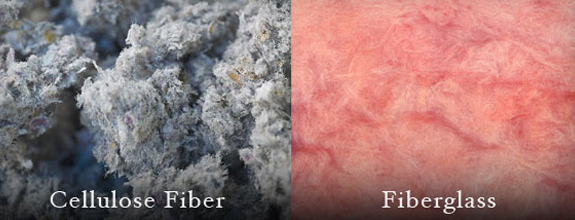
Insulation of homes has always been regarded as the tool to reduce the energy bills due to its efficiency in trapping heat or cold. I have always wondered the state of home owners who want to insulate their home because they may be in a fix while choosing the right types of insulation. My purpose of posting this blog is to provide valuable insights on the two most popular type of home insulation namely: Natural fiber vs. Fiber glass insulation.
To make it easy I am presenting the details in words of comparison under the factors that helps in selecting the suitable home insulation.
R value
As an experienced professional in home improvement segment, I always recommend my clients to pick the insulation material by first looking into it R value. This is the resistance to heat flow which decides the efficacy of the material to control the flow of heat. As a result your heating and cooling devices are able to perform much better. Fibre glass is supposed to have higher R value as its insulating capacity is more as compared to the cellulose material. Also, when we talk about the durability point, fiber glass has greater life while cellulose being a natural fiber is prone to degrading and requires replacement.
Vapour sorption
Fibre glass is an inorganic material and so it has the properties of fire resistance. Due to this it will not have the capability to hold water during the catastrophic events. Cellulose is made of shredded paper and is an organic substance. There are two properties of cellulose which may hamper its longevity namely: absorbs moisture and catches fire easily. However, when they are specially treated with fire retardants, cellulose insulation can last longer too.
Environment friendly
Being made of natural fibre cellulose is by far the most ecofriendly option. As there is always growing concerns of global warming every individual is striving to achieve a sustained environment. In this line, cellulose can be regarded as the ecofriendly product when compared to fibre glass insulation.
Sound control
I have seen quite many houses which give out echoes that can be annoying. Insulation effectively controls such sound making your home soundproof. Sound transmission can be effectively controlled by both fiber glass and cellulose at par.
Fire safety
When we talk about fire safety, fibre glass stands a step ahead in this perspective. Made from sand and other materials that are inorganic, fiber glass is non-combustible and does not require any kind of special process to make it fire retardant externally. But, this may be lacking naturally in the cellulose product. Despite the fire retardant added to the shredded paper it still loses the value when it gets wet.
Process of installation
Cellulose is usually installed using the blower and requires expertise. Due to this it is better to get the help of the experienced professional who can seal the walls, floors and ceilings resulting in energy efficiency. Fiber glass is comparatively easier to install as you get a number of do-it-yourself kits which is user friendly.
Air leakage
Cellulose helps in sealing the leaks of the walls and floors thereby giving much efficient insulating capability. Air leakages are almost negligible when compared to fiber glass insulation.
Cost and weight
Celluloses insulation is more expensive due to the use of organic material as compared to fiber glass. Also, the cellulose tends to be a heavier material and before the installation it is extremely important to inspect the building and its strength.
Having understood the pros and cons of fiber glass and cellulose, it’s now up to you to make a wiser decision.
Author Bio:
The Author is an experienced home insulation professional with more than 3 decades of experience. He knows the Home Insulation Calgary and Attic Cat Insulation marketplace inside out. After having served homeowners and businesses for so many years, he spends more time providing consulting services and sharing his knowledge through guest posts.


